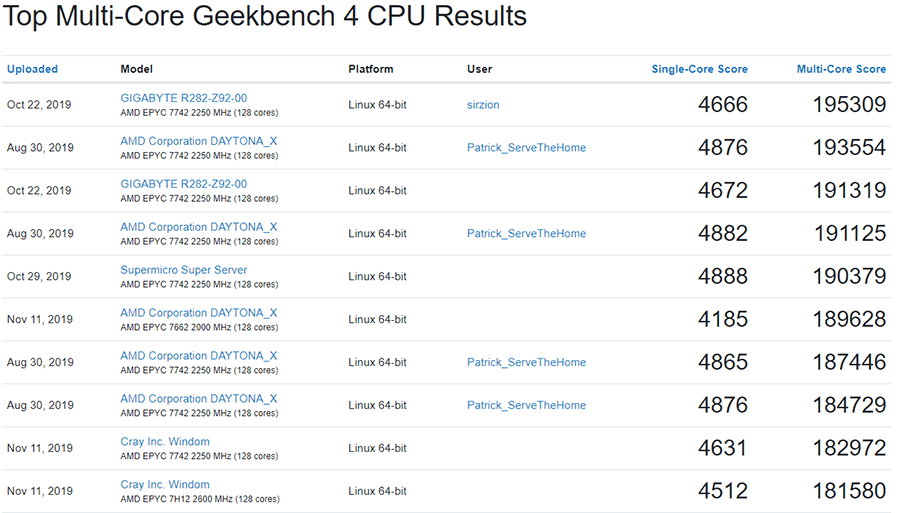A Geekbench 4 presentation today shows the performance of two AMD EPYC Rome 7H12 64-Core, 128-Thread Server Grade processors on the Cray Shasta supercomputer. AMD has extended its second-generation EPYC line with the 7H12 in September.
AMD currently has three 64-core, 128-thread EPYC chips in its arsenal, although more are on their way. With a 2.6 GHz base clock and a 3.3 GHz boost clock, the EPYC 7H12 is the fastest of the three existing models. The chip has a rated power of 280W, 55W more than the EPYC 7742, so the 7H12 should have a higher core clock.
The Shasta had two EPYC 7H12 processors, i.e. it had 128 cores and 256 threads. The system achieved a single-core score of 4,512 points and a multi-core score of 181,580 points.
Surprisingly, Shasta’s configuration was not enough to put the Geekbench 4 supercomputer, which belongs to the Gigabyte R282-Z92 system that carries a pair of EPYC 7742 chips, in the first place. Shasta drops about 3.4% and 7.6% behind the R282-Z92 in the values of one and more cores.
On paper, the EPYC 7H12 should outperform the EPYC 7742. Due to the lack of detailed information, we can only assume that the discrepancy is due to the fact that both systems run different memory, operating systems, and versions of the Geekbench 4 software.
EPYC Rome is based on Zen 2 architecture, just like Ryzen 3000 and Threadripper 3000.
